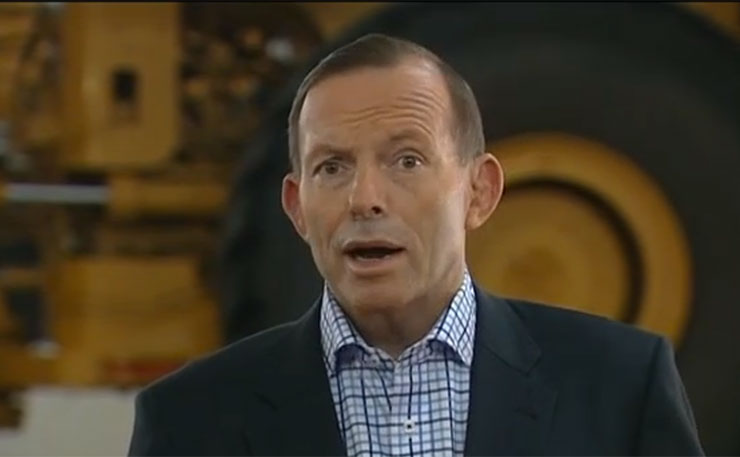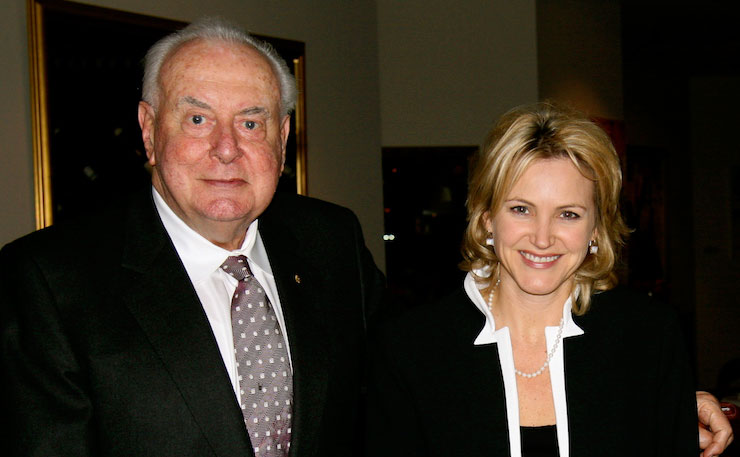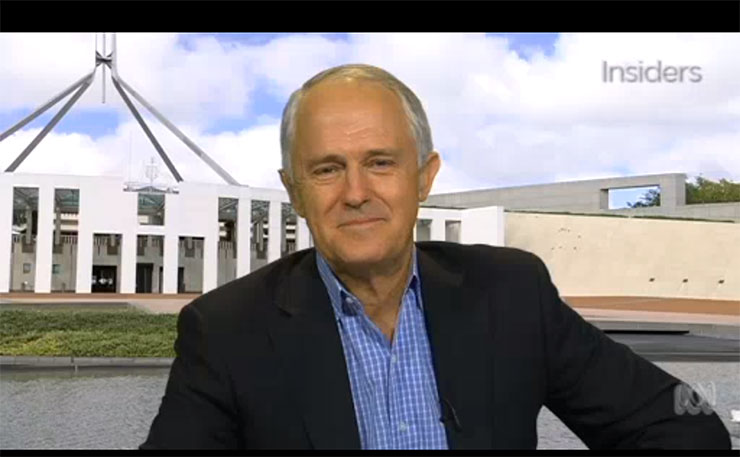OPINION: Malcolm Turnbull has notched up six months in office. Liam McLoughlin does the math.
By August 2015, it was official: Australia had its worst government of all time.
The Sydney Morning Herald broke the news based on a range of compelling factors. The Abbott government passed .372 acts per day, the least efficient record in 44 years. It ruled over dreadful statistical indicators on education, health, poverty, home ownership, women’s progress and Indigenous Australians. When combined with flouting so many of its pre-election promises, committing a series of policy blunders, and delivering the worst received budget in history, the government thoroughly deserved its wooden spoon.
It was a widely shared sentiment. Guy Rundle wrote a piece called Worst Australian Government Ever, Proven By Science, in which he declared:
“This is a very strange moment, for there can now be no doubt that this is the worst federal government in our history. We all throw ‘worst government ever’ around as a political insult, but here it is, here it actually is… the summary would read: has achieved none of the macro-policy goals that it itself set as the big challenges, has had no plan B agenda despite the obvious fast-changing global economic framework, lied about its intentions to get elected, has wrecked good work that Labor did, or let it die away, has used foreign policy for cheap political gain, has provided only deceit, frustration and neurosis, where people wanted clear leadership of any political type.
“Rundle assured us the Abbott government was worse even than the McMahon government of 1970-1972, which was “the Golden Turd of bad Australian governments for decades”.

The polls reflected this. An August Fairfax-Ipsos poll showed Labor led the Coalition by 54 to 46 per cent. There was justice in the world.
Then something amazing happened.
On September 15, Malcolm Bligh Turnbull sashayed into power and changed the country forever, addressing all the problems Australians had with the Abbott government.
Australia’s answer to Bernie Sanders turned the government into a policy-making machine, made enormous inroads into indicators of social progress and set out a clear vision for the country’s future.
Yes, the vision was mostly about the merits of an early election, but it was a vision nonetheless.
Australians have rewarded the Coalition for this extraordinary turnaround. In the latest Fairfax-Ipsos poll, the Coalition leads Labor 53 to 47 per cent.
To fully appreciate the scale of this transformation of the worst government ever, let’s compare Turnbull’s first six months in office with the early record of another great progressive Prime Minister: Edward Gough Whitlam.
Whitlam was sworn in as Prime Minister on 5th December 1972 and Lance Barnard became deputy Prime Minister. Prior to the Labor caucus meeting on the 15th December, Whitlam and Barnard ruled for two weeks in what was dubbed the “duumvirate”. They assigned themselves 27 portfolios before a full Cabinet was decided.
In a fortnight, Whitlam and his mate got a fair bit done. They made 40 significant decisions in this time including ordering negotiations to achieve full relations with China, ending Australia’s involvement in Vietnam, exempting everyone from conscription and freeing conscientious objectors from prison.
Whitlam reopened an equal pay case at the Commonwealth Conciliation and Arbitration Commission and eliminated sales tax on contraceptive pills. He announced major grants for the arts, barred racially discriminatory sports teams from Australia and instructed Australian diplomats to support sanctions on apartheid South Africa and Rhodesia.
As has been widely documented, Turnbull’s early period in the top job is similarly impressive. He’s endorsed the worst aspects of Abbott’s immigration policy. He’s deported Abyan, advocated discriminating against Muslim refugees in favour of Christians, and supported the return of 37 babies to concentration camps on Nauru and Manus. He’s embraced Abbott’s hawkish foreign policy, attacked basic civil liberties and appointed arch-conservative Andrew Nikolic as chair of the Parliamentary Joint Committee on Intelligence and Security.

Turnbull has done nothing about the 38 per cent of large Australian foreign companies which paid no tax in 2013-2014, but has led a long and pointless GST debate and is considering reducing company tax. He’s proposed fines for unemployed and underemployed Australians, backed the Trans-Pacific partnership and run an Abbott-like scare campaign on Labor’s tax plans, saying they would send a “wrecking ball” through the economy.
He’s also attacked unions, penalty rates, unfair dismissal protection and the minimum wage.
Energy and resources minister, Josh Frydenberg, clearly undersold the PM when he listed his best achievements of six months in office: an innovation statement, an Abbott initiated defence white paper, and media deregulation.
Whitlam and Turnbull both delivered rapidly high achieving governments. Within weeks of being elected, Whitlam created many whole new departments reflecting the government’s priorities: Aboriginal Affairs, Education, Environment and Conservation and Social Security.
Over the following few months in high office, Whitlam established a Royal Commission into Aboriginal land rights (which led to the Aboriginal Land Rights Act 1976), re-opened Australia’s embassy in Peking, established the Australian Legal Aid Office and The National Film and Television School, and launched the construction of the National Gallery in Canberra.
Within his first year he also established the Australian Development Assistance Agency to run overseas aid, initiated the Schools Commission to carry out a needs-based program of aid to government schools, and lowered the voting age from 21 to 18.
While some criticise Turnbull for being economically conservative, others argue he is a 21st century Whitlam with his progressive social agenda. His record speaks for itself.

In only six months, he’s pulled out of Gonski funding, gutted the TAFE system, announced $650 million in cuts to Medicare, stalled momentum on a republic, backed Abbott’s divisive $500 million plebiscite plan, called for a review of Safe Schools, failed to condemn the homophobia of his colleagues, slashed funding to the CSIRO resulting in 350 climate science job losses, endorsed Abbott’s pathetic emissions targets and direct action plan, echoed Abbott on coal, heavily subsidised the fossil fuel industry, approved one of the world’s largest coal ports close to the Great Barrier Reef, appointed Australia’s first wind farm commissioner, ruled out a shift to emission trading, mocked Labor’s “reckless” renewable energy target and ripped $1 billion from the foreign aid budget.
When Tony Abbott was ousted in September, The Saturday Paper ran a brilliant and scathing editorial on his Prime Ministership:
“Abbott governed for the past and the few conservatives desperate to continue living there. He governed against science and in contempt of the environment. He governed in opposition to social equality, in terror of reform. His was a government of fear and avoidance, a rolling sideshow anxiously avoiding the fact it had nothing to add and no idea what to do….
“He treated law like a plaything. He made policy at odds with the country’s own constitution. He fought consensus and held out against change. He refused humility. He let run the island camps where women and children are raped and men killed. He turned in from the world. He mocked treaties. He failed obligations…
“He was a coward with reform. He left the tax system lumbering and unfair. He failed to articulate policy. He hectored the ABC, cowing it and becoming ludicrously involved in editorial processes.”
Conveniently for The Saturday Paper, they’d written two political epitaphs for the price of one.
Donate To New Matilda
New Matilda is a small, independent media outlet. We survive through reader contributions, and never losing a lawsuit. If you got something from this article, giving something back helps us to continue speaking truth to power. Every little bit counts.





